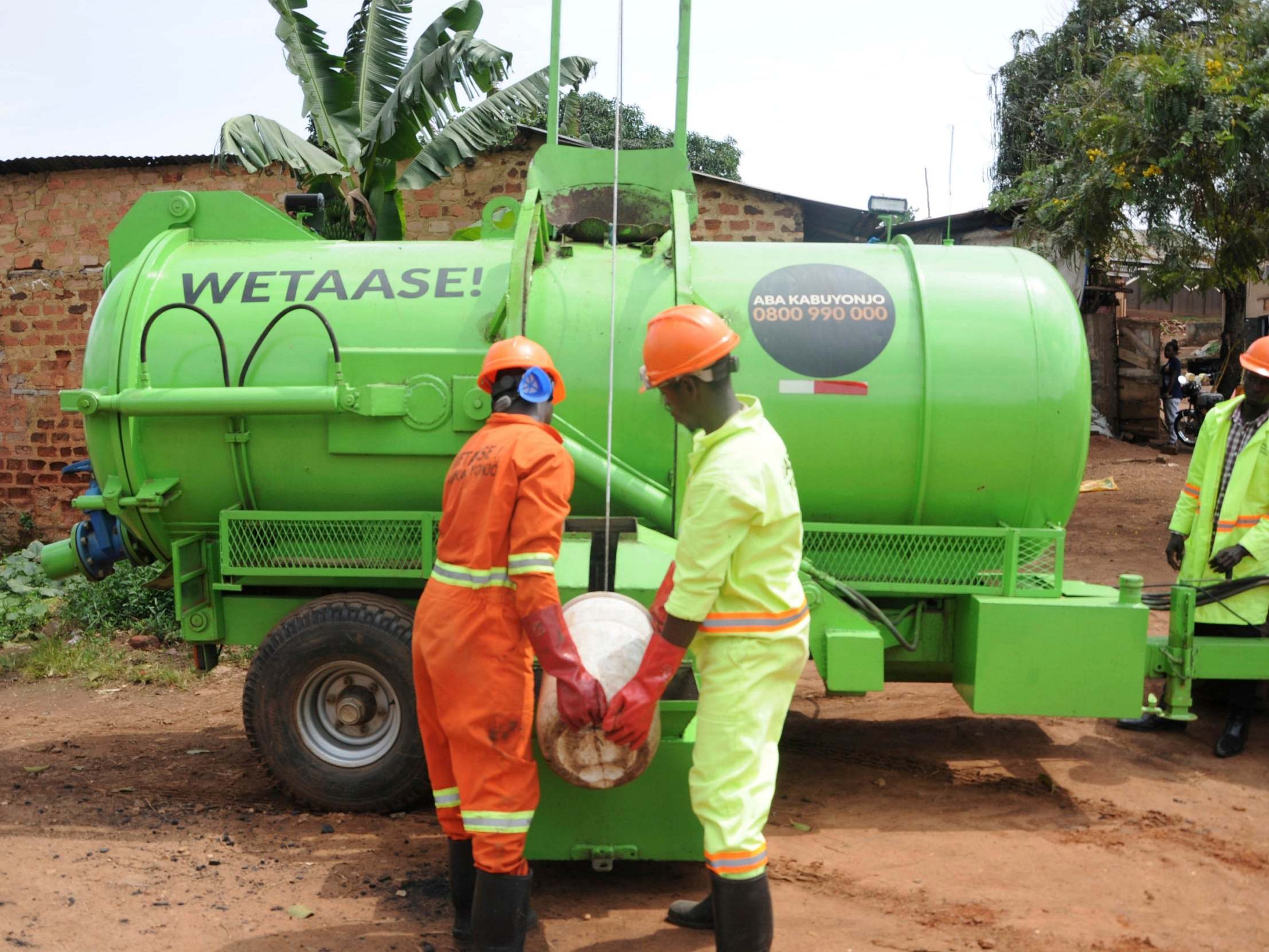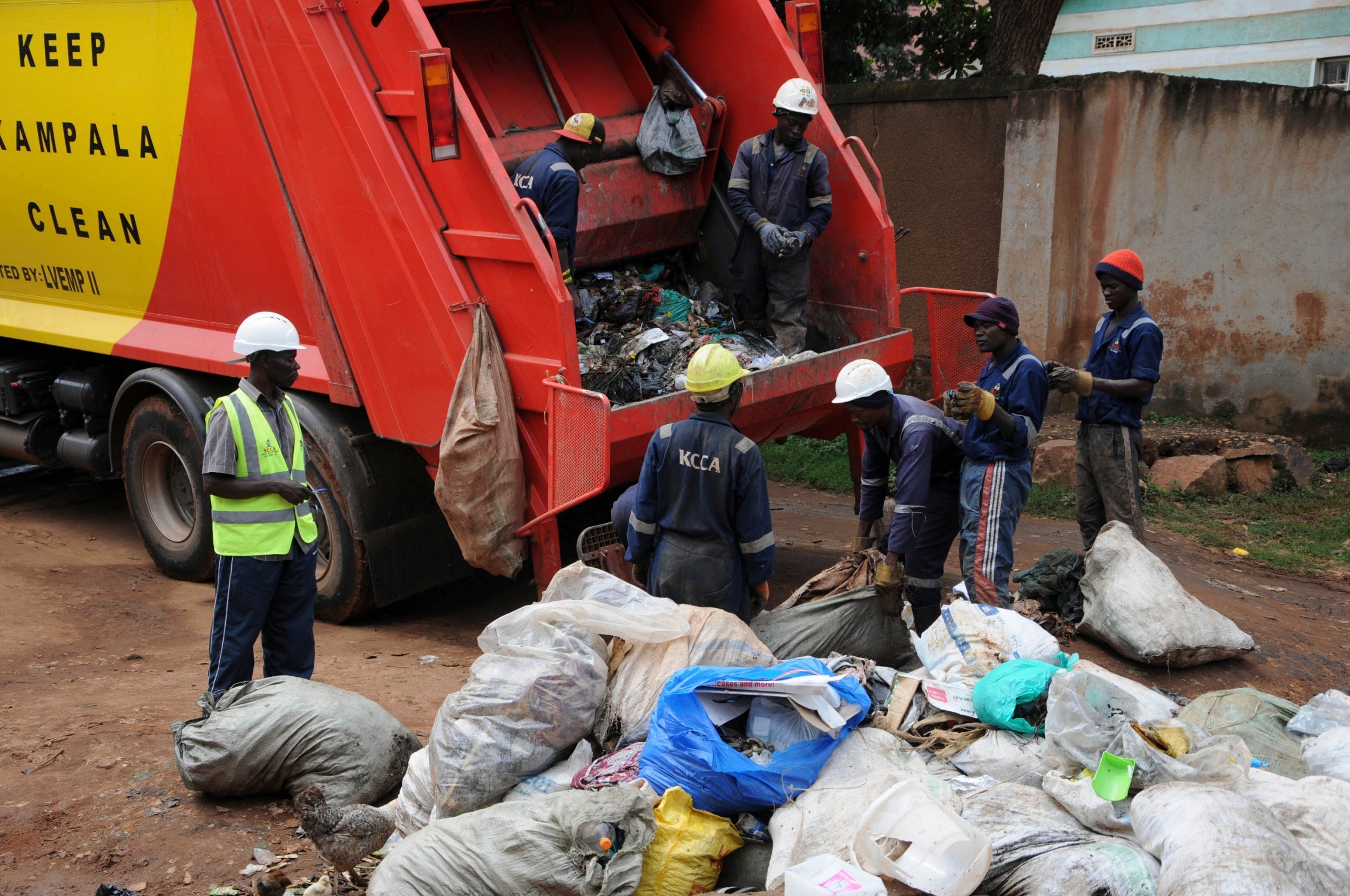Africa’s bustling cities face a severe toilet shortage
Uganda's capital, Kampala, is home to 1.5 million people but it has only 14 free public toilets

Your support helps us to tell the story
From reproductive rights to climate change to Big Tech, The Independent is on the ground when the story is developing. Whether it's investigating the financials of Elon Musk's pro-Trump PAC or producing our latest documentary, 'The A Word', which shines a light on the American women fighting for reproductive rights, we know how important it is to parse out the facts from the messaging.
At such a critical moment in US history, we need reporters on the ground. Your donation allows us to keep sending journalists to speak to both sides of the story.
The Independent is trusted by Americans across the entire political spectrum. And unlike many other quality news outlets, we choose not to lock Americans out of our reporting and analysis with paywalls. We believe quality journalism should be available to everyone, paid for by those who can afford it.
Your support makes all the difference.Africa's booming cities face a severe toilet crisis as decades-old public facilities crumble under the pressure of millions of inhabitants.
Meanwhile, United Nations figures estimate there are some 2.5 billion people without access to an adequate toilet.
And things could get worse. Africa’s urban areas contain 472 million people, a figure that the World Bank expected would double over the next 25 years.
As one of the fastest-growing cities in the world, Kampala is home to at least 1.5 million people but authorities say over 3 million pass through daily, usually for work.
Yet there are fewer than 800 pay toilets and only 14 free ones, many of them dilapidated with walls often smeared with faeces.
On the outskirts of Uganda’s capital, Kampala, there are no public toilets for around 1,200 people. Sewage is a scourge for the residents. Mud tinged with faeces washes into homes during heavy rains.
Local authorities say Kampala's urban sewer system covers less than 10 per cent of the population.
"Less than 50 per cent of the faecal sludge generated in Kampala safely reaches a waste treatment plant," said Angelo Kwitonda, a sewage engineer with the government. "The rest of the volume is kept in our homes."
When pit latrines and septic tanks are not safely built, they pose a serious health risk. They leak faecal waste that contaminates swamps and Lake Victoria, the city's main water source, especially during the rainy season.
Outbreaks of cholera and other water-borne diseases are common.
Authorities in Kampala have not constructed a single public toilet for years, though a plan exists to set up 200 toilets by 2025 with the support of donors such as the German development agency GIZ.

Private companies have been trying out solutions in poor, crowded neighbourhoods such as Makindye-Lukuli, where waste piles up around tin-roofed homes.
A sanitation program backed by the Bill and Melinda Gates Foundation focuses on emptying septic tanks in households not easily reached by vacuum trucks, which are privately operated.
Similar innovations are being tried out elsewhere in Africa. In the West African nation of Burkina Faso, where open defecation is said to be the norm in many villages, the group WaterAid promotes a fundraising initiative under which prominent residents commit their own money towards building public toilets.
In Senegal, whose capital Dakar is vulnerable to flooding, aid groups have helped to construct toilets that break down waste onsite, turning it into compost and a source of renewable energy, said Yacine Djibo of SpeakUpAfrica, a Senegal-based group whose work includes advocacy for improved sanitation across the continent.
Other sanitation entrepreneurs in Africa are developing toilet models that might charge as little as five cents for an entire day's use, an improvement on the traditional practice of charging users every time they walk in.
Join our commenting forum
Join thought-provoking conversations, follow other Independent readers and see their replies
Comments